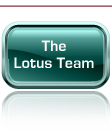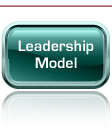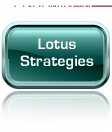











|
Key Terms Lotus Leadership is not just a company, it is a philosophy. It is a way of thinking, being, and acting. It’s a way of getting results and increasing the capacity for leadership—for the self, the system, and society. We’ve created our own language of leadership that has given us the direction to solve tough business problems and to help people reach their full potential professionally, personally, and socially. We invite you to get to know the Lotus language—developed from years of scholarly research and organizational experience. Working with the Lotus Leadership Institute will not only increase your leadership vocabulary but also increase your ability to implement these ideas in your personal and organizational life. Leadership – mobilizing a person or group of people to acknowledge, confront, and address a challenge in a way that effectively facilitates change. Exercising leadership involves understanding factors such as the art of influencing others, the ability to ask tough questions, the importance of intellectual inspiration, the importance of strategy, and vision. The exercise of leadership is a shared process that engages people to think differently and often results in higher levels of awareness about the self, the system, and society. Lotus Leadership – Leadership that facilitates transition and maintains commitment and work toward purpose. Purpose – Purpose is the foundation for meaningful actions or outcomes. Purpose can change over time, is transitional and is often defined by vision and goals. Individuals, groups, and organizations should frequently revisit their purpose to ensure actions are consistent with purpose. We have to be careful to not lose sight of purpose because of social influences or organizational pressures. Lotus Leadership Purpose: To assist women individually and organizationally through times of transition and to increase their capacity to demonstrate authority and exercise leadership. Authority – power that is earned or assigned by others and is accompanied by an expectation and right to perform work or a service. SELF: the individual factors that influence behavior, such as personal background, disposition, and personal demeanor. SYSTEM: the organizational and structural elements within the system that influence behavior, such as the policies, rules, purpose, and personnel structure of the organization. SOCIETY: the socio-cultural factors that influence behavior, such as norms, behaviors, ideologies, beliefs and traditions. Presence – having an awareness and commitment to the present moment, present task, and present interpersonal relations. In short, presence means being in the here and now without losing awareness of the past and future. Authenticity- A pattern of behavior that fosters greater self-awareness and relational transparency. When a person acts in ways consistent with her or his values and beliefs. Adult Development – Development that works to improve a person’s cognitive, emotional, and intellectual abilities and increases a person’s capacity to manage tensions between what is and what could be. A better understanding of knowing yourself and your relationships with others helps to inform behavior so that meaningful interactions occur. Types of Work: Procedural- Routine tasks that are driven by procedures, such as payroll, or scheduling appointments. Many times, people go through the day treating every task as if it were equal, when in fact, some tasks require dedicated presence and focused leadership while others may simply require a routine. When we treat the transformative and transitional issues as procedural tasks we run into trouble. Our workload is not static, and in many cases, work that may seem procedural may be embedded with transformative issues. For example, creating a budget may seem like a simple, routine task, however, in many cases, creating a budget is difficult due to the transitional and transformative elements. Lotus Leadership Institute can help with that complexity. |
|
|||||||||||||||||||||

